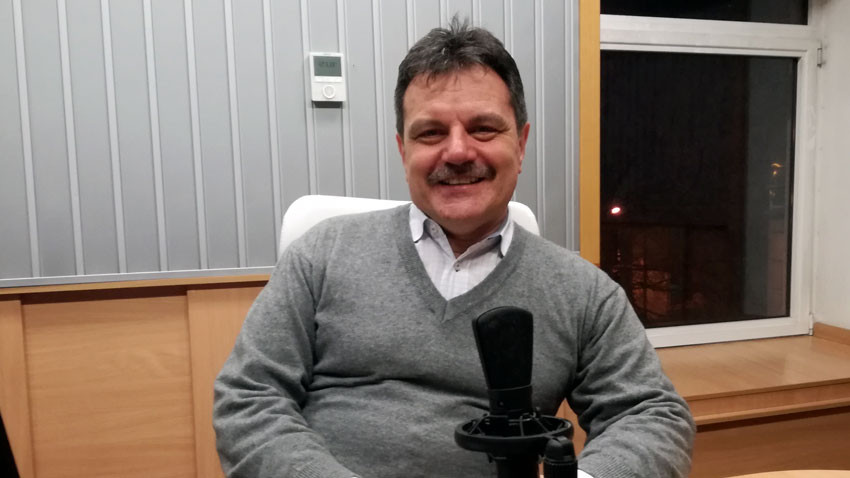Satellite images of air pollution levels over Europe provide evidence of the connection between dirty air and the severity of the Covid-19 infection.
“The zones with higher pollution levels coincide with great precision with the places where the course of the coronavirus disease among the population is more severe,” pulmonologist Dr. Alexander Simidchiev explained for the BNR’s Horizont channel.
In his words, occurrence of the disease among people living in more polluted areas is higher and the course of the disease is more severe. The reason: the fine particulate matter causes the immune reaction of the mucus membrane of the respiratory system to change. “This means that when we inhale filth, dirty air, the immune system starts to battle the dirty air instead of the bacterial or viral agents.”

“Filter masks which effectively reduce fine particulate matter can effectively stop both the coronavirus infection, and the pollution of the air. Because viruses spread via particles, and pollution also spreads via fine particulate matter. So, masks with filters can effectively reduce this risk,” the pulmonologist explains.
Dr. Simidchiev points out that smokers are much more damaged in terms of vascular function and lung condition and that increases the risk if they contract Covid-19. Tobacco smoking affects the circulatory system, smokers often have atherosclerosis and ischaemic heart disease which are coronavirus risk factors.
Chronic obstructive pulmonary disease (COPD) is the result of the long-term impact of the environment on the lungs. Smoking is the single biggest factor for this disease even though with ¼ of the patients the cause is different, Alexander Simidchiev says.
“People with chronic obstruction of the respiratory tract are much more careful and contract the coronavirus infection less often than the average healthy person,” the expert says.
Concern among people with chronic diseases is escalating as the pressure the epidemic is putting on hospitals in the country mounts. 5,629 people are currently being treated in hospital, 313 of them are in intensive care. Though their number is going up all the time, Minister of Health Kostadin Angelov says that the problem is not in a shortage of hospital beds, but in a shortage of medical experts. The number of medical staff with confirmed Covid-19 has been growing, and, according to latest data, now stands at 4,330.
One of the ways to reduce the pressure on medical establishments is for the state to launch an awareness-raising campaign about the disease, says Prof. Georgi Mihailov. He is an MP from the Bulgarian Socialist Party, but is currently practicing as a doctor at the hospital in Svishtov.
“Because on the ground we see the stress of the nation. People who are not in need of hospital treatment are insisting on being admitted to hospitals. It should be understood that this is not a particularly dangerous infection, with a mortality rate of 3 per 1,000. A campaign should be launched to help each member of the public understand that the majority of patients can be treated at home. That they must not self-medicate, as is currently the case, that people should not “pump” their bodies with corticosteroids or heparin,” Dr. Mihailov says in an interview for BNR.
Compiled by Elena Karkalanova
How to preserve and maintain public trust in media - this is the central topic for participants in the Public Broadcasters International (PBI) 2025 Annual Conference, which is taking place in Sofia. The event, organized..
From today until 28 October, Vidin will transform into a cultural hub to celebrate its patron saint's day - St Dimitar's Day (Dimitrovden). The new festival, “October Arts Days”, features a rich programme combining music, theatre, visual arts, and..
The virtual space where you can find information about Bulgarian restaurants in Berlin, the services offered by Bulgarian craftsmen, as well as addresses and phone numbers of doctors working in the country, is the work of two Bulgarians who settled in..
The virtual space where you can find information about Bulgarian restaurants in Berlin, the services offered by Bulgarian craftsmen, as well as addresses..
From today until 28 October, Vidin will transform into a cultural hub to celebrate its patron saint's day - St Dimitar's Day (Dimitrovden). The new..
How to preserve and maintain public trust in media - this is the central topic for participants in the Public Broadcasters..

+359 2 9336 661
